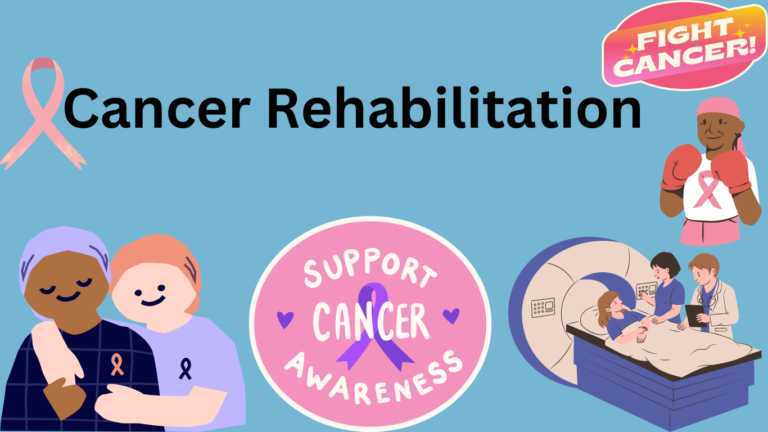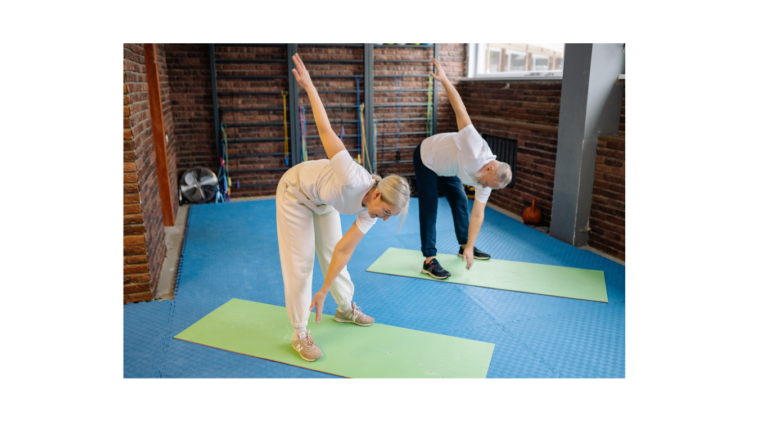
Cancer Rehabilitation
Cancer rehabilitation, often referred to as “onco-rehabilitation” or “cancer rehabilitation,” is a specialized branch of rehabilitation medicine that focuses on helping individuals affected by cancer to regain or improve their physical, emotional, and social well-being. Cancer and its treatments can have a significant impact on various aspects of a person’s life, including physical function, psychological well-being, and social interactions. Onco-rehabilitation aims to address these challenges and enhance the overall quality of life for cancer survivors.
What are the problem facing by a someone during treatment
Cancer treatments, such as chemotherapy, radiation therapy, surgery, and immunotherapy, can cause various side effects that may impact a person’s physical, emotional, and social well-being. Some common side effects include:
Fatigue: Cancer treatment can cause extreme tiredness and fatigue, which may persist even after treatment ends.
Nausea and vomiting: Chemotherapy and radiation therapy can lead to nausea and vomiting, affecting appetite and nutritional intake.
Pain: Surgery, radiation therapy, and certain medications may cause pain and discomfort at the treatment site or throughout the body.
Changes in appetite and weight: Cancer treatment may affect taste, leading to changes in appetite and weight loss or gain.

- 5. Hair loss: Chemotherapy often causes hair loss, which can be temporary or permanent depending on the type of treatment.
- 6.Cognitive changes: Some cancer treatments can result in cognitive impairment, commonly referred to as “chemo brain,” characterized by problems with memory, concentration, and processing information.
- 7.Emotional distress: Dealing with a cancer diagnosis and undergoing treatment can cause significant emotional distress, including anxiety, depression, and fear of recurrence.
Cancer Rehabilitation plays a crucial role in helping individuals overcome the side effects of cancer treatment and improve their quality of life. Rehabilitation programs tailored to the individual’s needs may include:
Importance of Cancers Rehabilitation
Cancer Rehabilitation plays a crucial role in helping individuals overcome the side effects of cancer treatment and improve their quality of life. Rehabilitation programs tailored to the individual’s needs may include:
1 .Physical therapy: Physical therapists can help cancer survivors regain strength, mobility, and function through exercises, stretches, and other techniques.
2.Occupational therapy: Occupational therapists assist individuals in relearning daily activities, such as dressing, cooking, and self-care, to regain independence and improve quality of life.
3.Speech therapy: Speech therapists work with individuals who experience speech or swallowing difficulties following cancer treatment, providing exercises and strategies to improve communication and swallowing function.
4.Nutritional counselling: Registered dietitians can offer guidance on maintaining a healthy diet during and after cancer treatment to support healing, manage side effects, and prevent malnutrition.
5.Psychological support: Psychologists, counselors, or support groups can provide emotional support, coping strategies, and interventions to address anxiety, depression, and other mental health concerns.
6.Pain management: Pain specialists can help cancer survivors manage pain through medications, physical therapy, relaxation techniques, and other interventions.
7.Survivorship programs: Many cancer centers offer survivorship programs that provide comprehensive care and support to cancer survivors, addressing physical, emotional, and practical needs throughout the survivorship journey.
Overall, cancer rehabilitation can help cancer survivors manage side effects, regain function, and improve their overall well-being, enabling them to lead fulfilling lives beyond cancer treatment.
Join Our Cancer Rehabilitation Program
IN WHICH WE HAVE PROVIED

online mobility session daily . 5 days a weak . cancer rehabilitation, mobility sessions play a crucial role in helping patients regain their physical strength, flexibility, and overall well-being. These sessions typically involve a combination of exercises, balanced activities, and specific training techniques tailored to the individual’s needs and abilities.

Breathing exercises can indeed be beneficial for patients undergoing cancer rehabilitation. These exercises focus on improving lung capacity, promoting relaxation, and reducing stress, which are essential aspects of overall well-being during cancer treatment and recovery.

To reduce the side effects of cancer during and after treatment, Diet plays a crucial role in cancer rehabilitation by providing essential nutrients to support recovery, strengthen the immune system, manage treatment side effects, and promote overall well-being.
To Join the Cancer Rehabilitations
Patient Review



